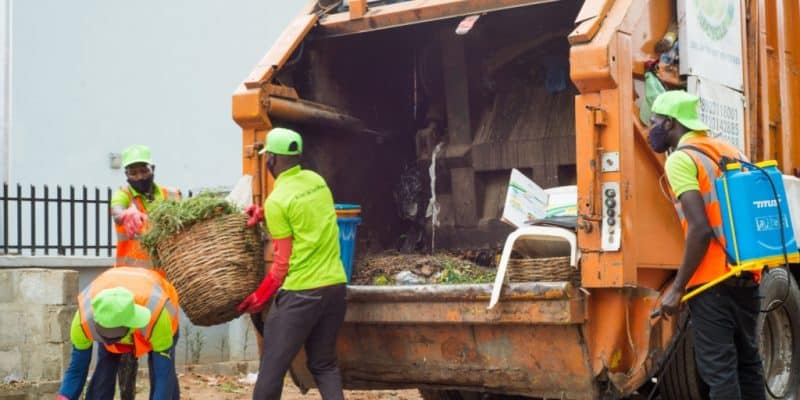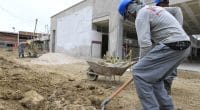Lagos is one of the most waste-polluted cities in Nigeria and Africa, with more than 13,000 tonnes of solid waste produced every day. The Lagos Waste Management Authority (LAWMA) is launching a month-long training programme to equip students from several universities in the sustainable management of this waste.
Agents of change and champions of environmental sustainability. This is what participants in the month-long training programme recently launched by the Lagos Waste Management Authority (LAWMA) in Nigeria will soon be called. The courses to be given at the academy of the Lagos parastatal waste management body cover areas of particular interest in sustainable waste management.
These include “resource recovery and waste management, smarter solutions for segregation and logistics, waste recycling, PSP (Private Sector Partnership) models for waste, waste financing, waste audits, forensic waste analysis, turning waste into wealth, promoting job creation, etc.”, says LAWMA. The course participants are all recent graduates from the West African country’s various universities.
Recycling solid waste to combat pollution
Solid waste can be recycled to produce fertiliser for agriculture (organic waste), electricity (organic waste, plastics) or raw materials for industry. And there is no shortage of waste in Lagos. The city of some 16 million inhabitants, one of the most polluted in Nigeria, generates almost 13,000 tonnes of waste every day. This rubbish encourages the proliferation of mosquitoes, leading to a high incidence of malaria and a high risk of contracting cholera and other diseases. In some neighbourhoods, the smell of the rubbish (olfactory pollution) makes the area uninhabitable.
During these 30 days of training initiated by LAWMA, the Nigerian students will also have the opportunity to discuss their experiences in the sector with environmental consultants, professionals working in the waste management sector or on waste management infrastructure projects, project managers, administrators, coordinators and other professionals working on community projects.
Read Also – NIGERIA: Use of refuse bins to be mandatory from January 2023 in Lagos
In addition to knowledge of the benefits of a circular waste economy in Lagos and access to finance, the transition to this approach in Lagos will also require adequate waste management infrastructure, a tougher regulatory framework and collaboration between government, the private sector, foreign investors and civil society.
Lagos is not an isolated case. In Nigeria’s 1,199 other metropolises, there is also a need to put in place effective waste management systems. The West African country currently produces around 32 million tonnes of solid waste a year, of which only 20-30% is collected and managed properly. More than 70% of this waste ends up in landfill sites, bodies of water or sewers.
Inès Magoum







